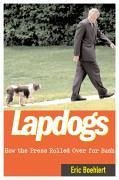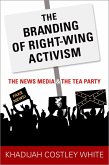Boehlert homes in on the reasons the press did not do its job: a personal affinity for Bush that journalists rarely displayed toward his predecessor, Bill Clinton; a Republican White House that threatened to deny access to members of the media who asked challenging questions or voiced criticism; and a press that feared being tainted by accusations of liberal bias. Moreover, journalists -- who may have wanted to report accurately on the important stories -- often found themselves at cross-purposes with media executives, many of whom were increasingly driven by economic concerns. Cowed by all of these factors, the media abandoned their traditional role of stirring up meaningful public debate.
Boehlert asserts that the Bush White House never subscribed to the view -- commonly held by previous administrations -- that a relationship with the press is an important part of the democratic process. Instead, it saw the press as just another special interest group that needed to be either appeased or held at bay -- or, in some cases, squashed. The administration actively undermined the basic tenets of accurate and fair journalism, and reporters and editors accepted their reduced roles without a whimper. To an unprecedented degree, journalists too often stopped asking uncomfortable questions of people in power. In essence, the entire purpose and pursuit of journalism was sacrificed.
Riveting in its sharp denouncement, supported by dozens of glaring and troubling examples of journalistic malpractice, Lapdogs thoroughly dissects the press's misconduct during Bush's presidency and gives voice to the growing public dismay with the mainstream media.
Dieser Download kann aus rechtlichen Gründen nur mit Rechnungsadresse in A, B, BG, CZ, D, DK, EW, E, FIN, F, GR, HR, H, I, LT, L, LR, NL, PL, P, R, S, SLO, SK ausgeliefert werden.









